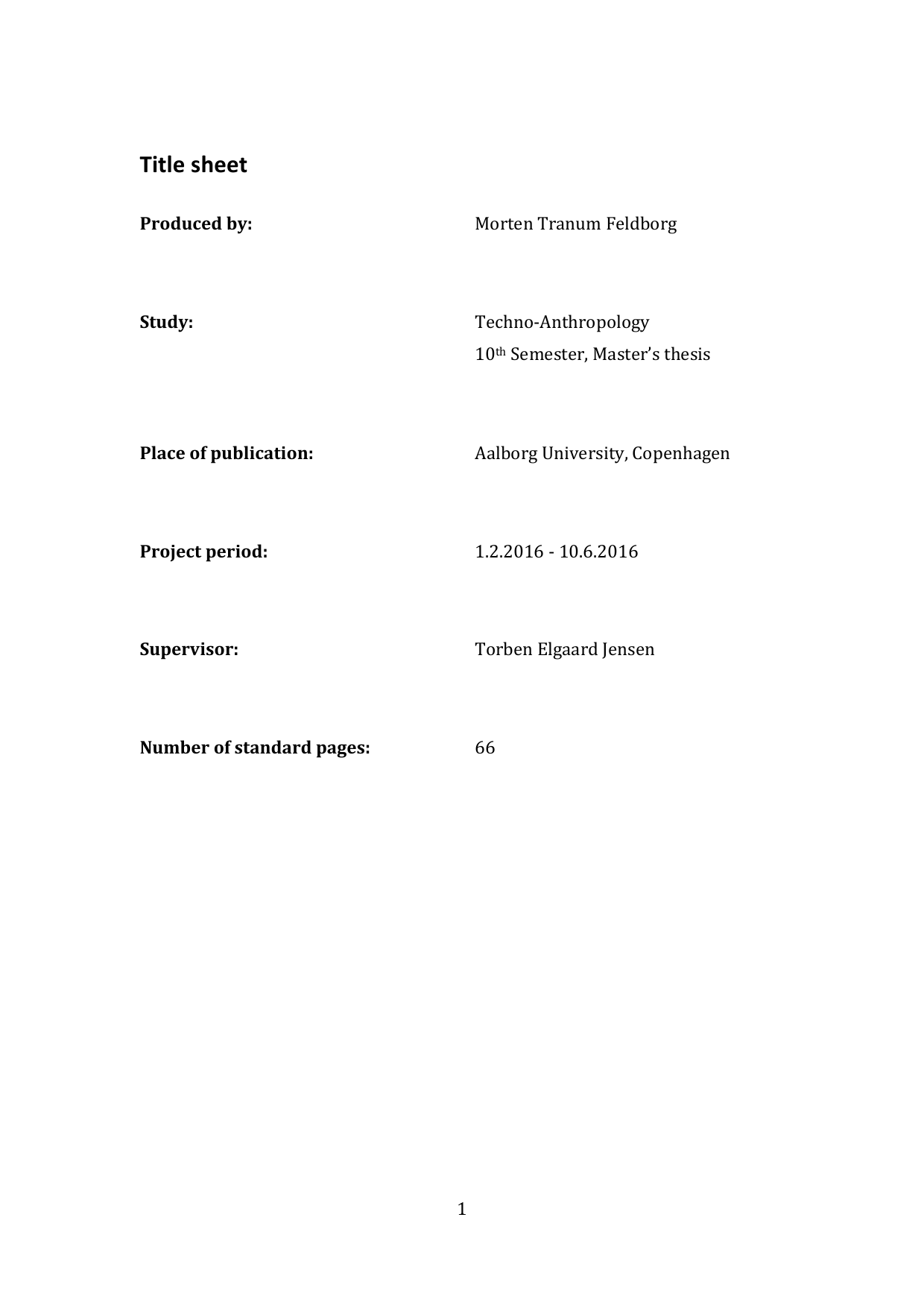
The Fablab - The New and The Old Laboratory
Author
Term
4. term
Education
Publication year
2016
Submitted on
2016-06-10
Pages
66
Abstract
Fablabs og makerbevægelsen har i de seneste år fået en del opmærksomhed, både i offentligheden, medierne og akademiske kredse. Specielt fablabs, som digitale fabrikationslaboratorier har vundet momentum og spreder sig i øjeblikket ud over hele verden med stor succes. Disse værksteder eksisterer som kreative samlingspunkter for folk der ønsker at skabe fysiske produkter ud fra deres ideer ved hjælp af højteknologiske fabrikationsmaskiner. Dette speciale bygger på en undren omkring hvorfor fablabs har valgt at bruge laboratoriebegrebet og undersøger derfor hvordan et fablab kan forstås som et laboratorium i lyset af teori om det naturvidenskabelige laboratorium indenfor det videnskabelige område Science and Technology Studies (STS). Den empiriske undersøgelse er udført som et etnografisk feltstudie på et specifikt fablab, Fablab Nordvest, beliggende i Københavnsområdet. Den følgende analyse tager udgangspunkt i nøglebegreber i laboratoriestudierne fra STS feltet i en analysestruktur der følger den sekventielle proces i et naturvidenskabelige laboratorium fra input til transformation og output for at forstå processerne der finder sted i et fablab. Fra den efterfølgende diskussion af hvordan fablab’et kan ses som et laboratorium i forhold til det klassiske naturvidenskabelige laboratorium kan det konkluderes at selvom de to laboratorier har mange ligheder er de også fundamentalt forskellige. De adskiller sig fra hinanden i forhold til hvilket output de producere og hvad deres generelle intentioner er, og som følge deraf er også de interne processer struktureret forskelligt. Fablab’et kan med sin diverse og eksperimenterende tilgang modsat det naturvidenskabelige laboratorium der fokuserer på produktion af videnskabelige artikler igennem en videnskabelig proces, ses som en nyfortolket udgave at det klassiske laboratorium. Denne nye type laboratorium er kalibreret til nutiden og specielt makerbevægelsen der har som mål at omdanne ideer til konkrete fysiske produkter.
Fablabs and the maker movement have in recent years received a great deal of attention from the public, media and in academia. Fablabs as laboratories for digital fabrication are gaining momentum and successfully spreading across the world. These workshops exists as creative hubs where people can realise their ideas into physical products with high-tech fabrication machines. This thesis is based on a wonder about why fablabs have chosen to use the laboratory notion and hence it is investigated how fablabs can by seen as laboratories when applying theory about the natural scientific laboratory derived from Science and Technology Studies (STS). The empirical investigation is realised through an ethnographic field study of a designated fablab, Fablab Nordvest, located in the metropolitan area of Copenhagen. The further analysis of the empirical data applies key approaches from previous laboratory studies from the field of STS in a framework consisting of a sequential progression of inputs, transformations and outputs in the natural scientific laboratory to further understand fablab processes. From the subsequent discussion of how the fablab can be seen as a laboratory in relation to the classic laboratory in natural science it is concluded that the two laboratories although having some similarities also are fundamentally different. They differ in relation to outputs and their general intentions and hence also the structure of the internal processes. The fablab as a diverse and experimental laboratory can contrary to the natural scientific laboratory that focuses on production of scientific articles through concrete scientific procedures be viewed as a new version of the classic laboratory. This new type of laboratory is a laboratory calibrated for modern times and especially the interests of the maker movement that seek to realise their ideas into concrete physical products.
Documents
